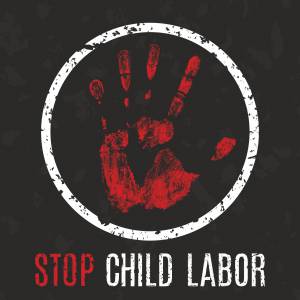Child brides and marriages have been in the news lately. In Canada, the age of consent is 18 or 19 in most jurisdictions, but with parental or court permission, an individual as young as 16 can get married. The situation is much similar in the U.S., although a few states do have laws to allow individuals as young as 13 to get married. In those cases, court and parental consent are required. Internationally, child brides are considered a bigger problem, largely due to the fact that these young girls have no say in their fate. Girls around the world do not have the same protections that girls in North America do. The United Nations hopes to change that.
No to Child Labour; Yes to Education
One of the most basic rights for each individual is education. It’s just as important as health, food, safety and shelter. Some countries do not educate their girls or only provide education to a certain age. The International Labour Organization estimates that about 168 million children around the world work instead of going to school or playing. About 120 million of these children are aged 5–14. Many of these children work full-time in deplorable and hazardous conditions. Some have been forced into the workforce because of human trafficking or slavery.
In 1919, the ILO was born, mostly out of the need to end child labour around the world. The ILO has actually been making progress. The goal was to end child labour by 2016, but there’s still work to be done. The ILO actually recognizes the importance of social dialogue in the fight to end child labour in production and manufacturing.
Awareness in the Present
The 2016 World Day to End Child Labour is on June 12. The focus this year is to end child labour in supply chains. A supply chain is the sequence of activities that leads to distribution or the production of goods. Stereotypically, most people think of children sewing clothes, but child labourers work in many other industries, from fishing to mining.
The ILO recommends effective governance as one of the keystones against child labour. Individually, there’s even more that can be done. Here are some recommendations:
- Get educated. The Institute for Humane Education is one place to get started. The ILO has a number of resources as well.
- Buy fair trade products. There are a number of labels, Fair Trade Certified, Goodweave and Fairtrade Mark.
- Talk to retailers about where they are buying their products. Ask them to make sure they are using responsible suppliers and distributors. You have the right to ask about the origin of the product you’re buying. You may need to dig deep and go to the manufacturer to get information.
- If you are a stakeholder in a business, make sure your organization is supporting businesses that don’t use child labour.
- Talk about the social injustices with others who can make a difference in their own circles.
Making a Difference
Don’t think that your small business won’t make a difference by buying responsibly. In India, the tent dealers association stopped 80 child marriages in Rajasthan, India by simply asking to see the birth certificates of the brides and grooms before renting a tent for their wedding. By coming together and making a stand, these businesses are changing their country.
Join the campaign to stop child labour. On June 12, the UN and ILO have arranged a number of activities in countries around the world. Ask your government officials to start thinking about next year and what you can do in your community to make a difference for children everywhere. The little girl next door to you may not have to worry about going to work, but in many countries, there are little girls and boys who are.




